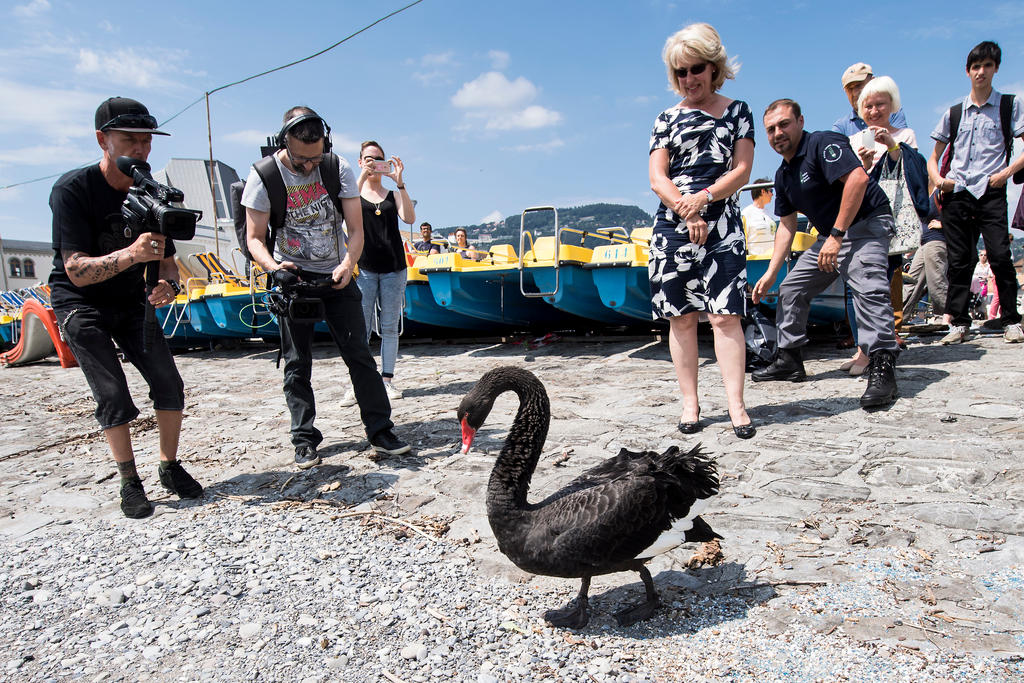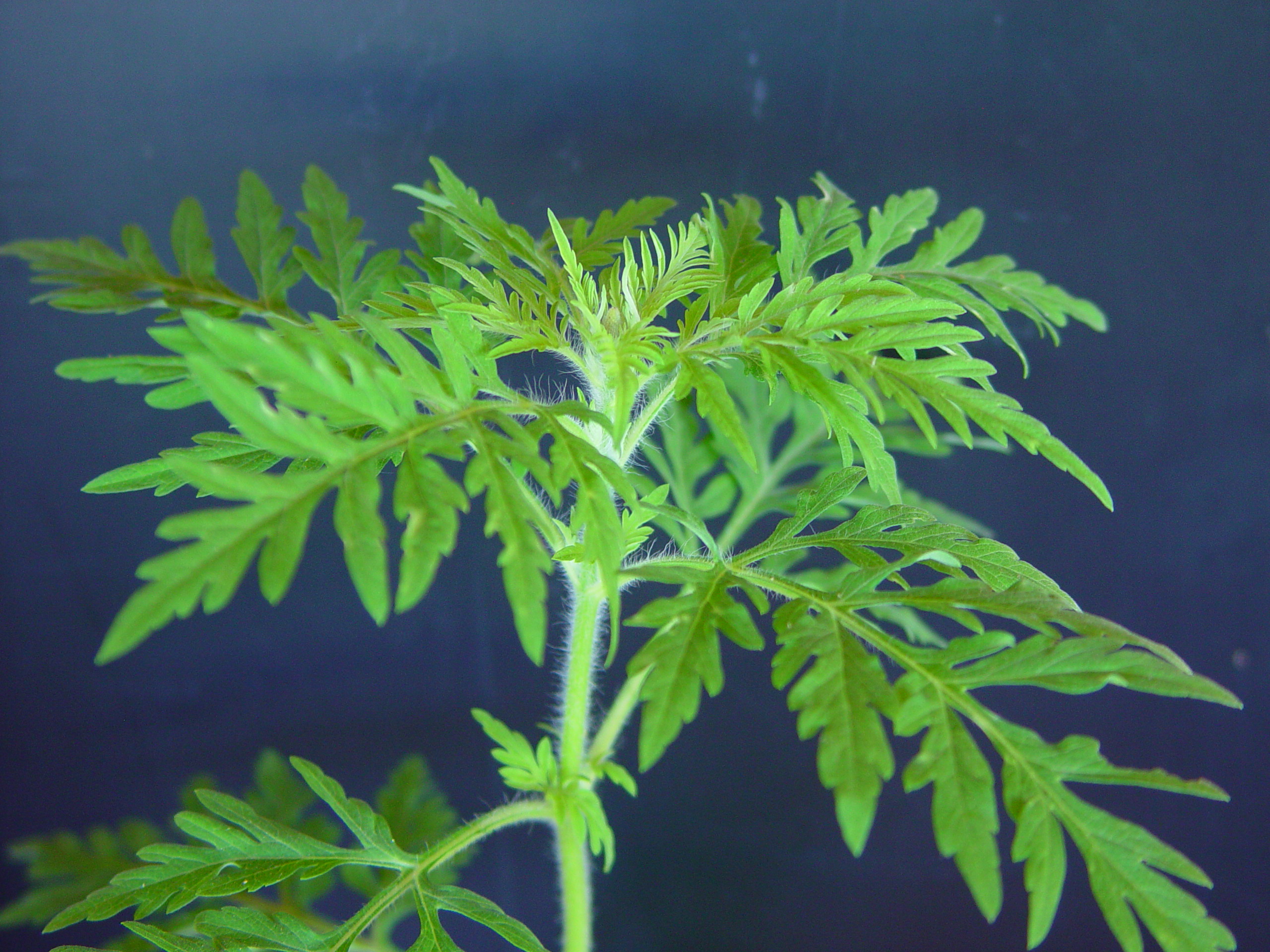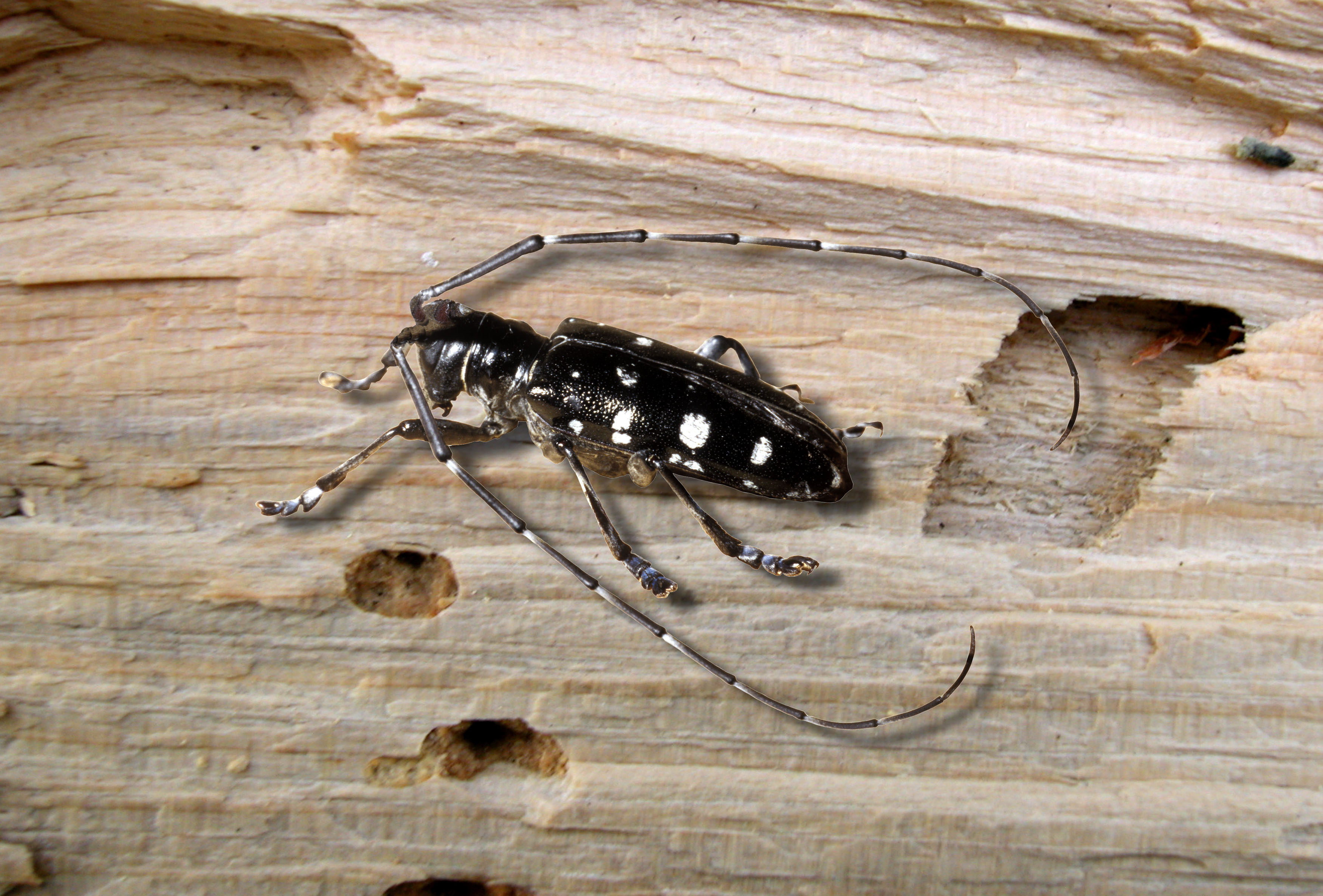Controversy around release of black swan in Swiss lake

The release of a black swan in Lake Geneva by a government official has created a controversy as it is an exotic species. Bird groups say it violates regulations and sets a bad example.
The bird, baptised Nelson in homage to the late South African president Nelson Mandela, was released in Vevey on the shores of Lake Geneva on June 30 by Vaud cantonal government member Jacqueline de Quattro.
Nelson was captured from the lake on May 27 and temporarily housed in the Servion zoo. A video showing the capture elicited consternation on the web and a social media campaign to set the bird free was launched.
The swan had a ring around its leg indicating that it had either escaped from captivity or had been deliberately released into the wild. The authorities were unsuccessful in locating the owner and de Quattro, who is also in charge of environmental affairs for the canton of Vaud, decided to release it back into the lake.
Release footage from 24 heures:
Bad decision?
The black swan is an exotic species that breeds in Australia. Lake Geneva only hosts the white-coloured “mute swan” species.
“The federal regulations prohibiting the release of exotic species are quite clear and the black swan is an exotic species,” spokesperson and biologist Michael Schaad of Swiss Ornithological Institute Vogelwarte, told swissinfo.ch.
But de Quattro defended her decision and denied she had committed an illegal act.
“We had tested the animal for diseases and found it was perfectly healthy,” she said. She also added that the swan was not an invasive species and could not breed with local swans.
Schaad is not convinced and says the swans could pose a threat to local wildlife.
“It cannot be excluded that they [black swans] could interbreed with mute swans. Waterbirds are highly capable of interbreeding with each other,” he says.
Schaad also warned that the government official was setting a dangerous precedent.
“It is setting a bad example as they are not a part of Swiss wildlife. People who have exotic species might think it is alright to release them in the wild,” he says.
de Quattro denied that her actions were setting a bad example and said the swan would not cause any damage to local wildlife unlike exotic turtles or crayfish that had been released into Swiss waterways in the past.
This is not the first time black swans have courted controversy in Switzerland. Around ten black swans on Lake Thun in central Switzerland were saved from government intervention thanks to a petition signed by around 6,000 people. The species had also been spotted in Lake Constance on the German border.

In compliance with the JTI standards
More: SWI swissinfo.ch certified by the Journalism Trust Initiative



You can find an overview of ongoing debates with our journalists here. Please join us!
If you want to start a conversation about a topic raised in this article or want to report factual errors, email us at english@swissinfo.ch.